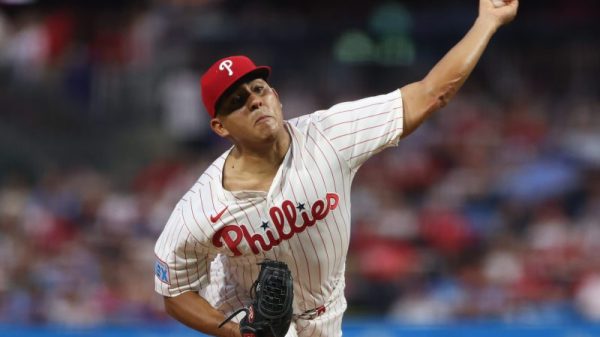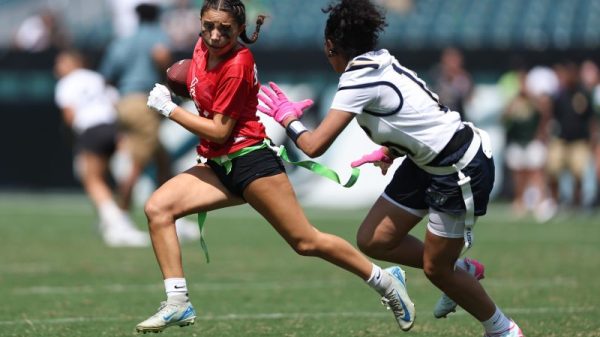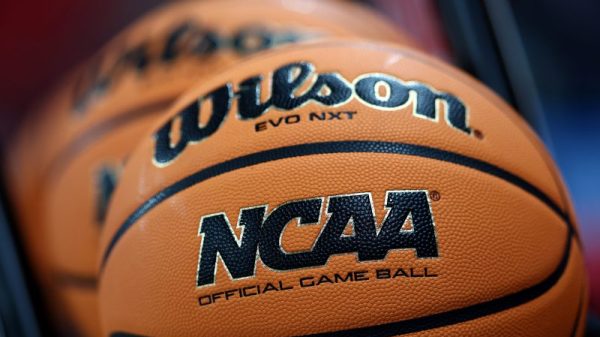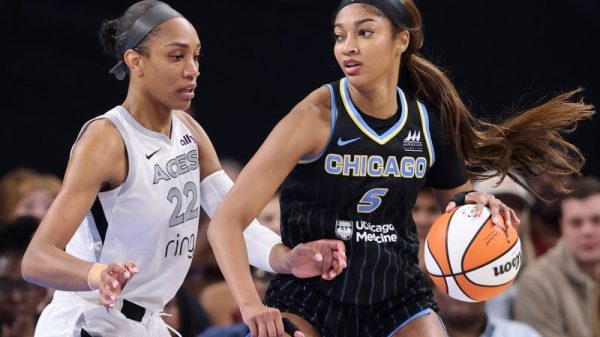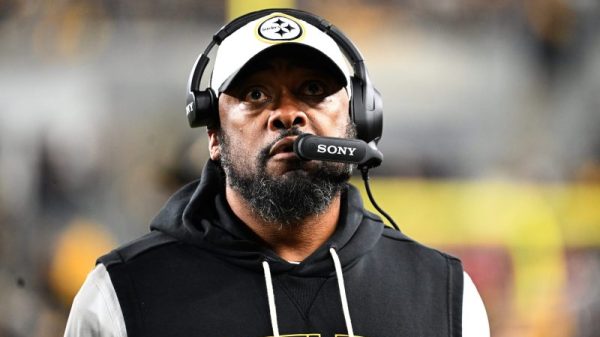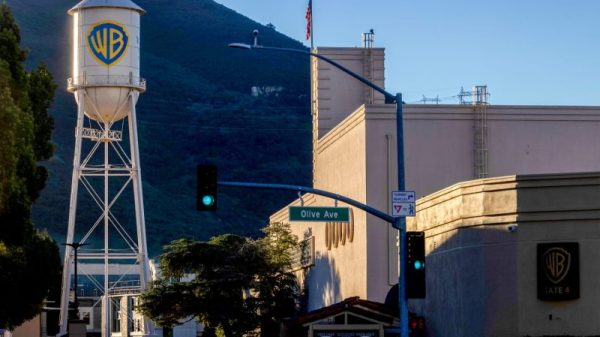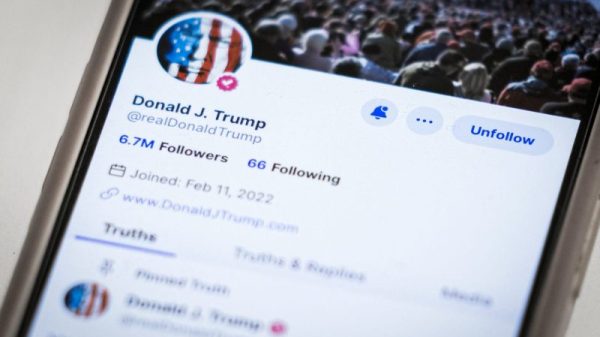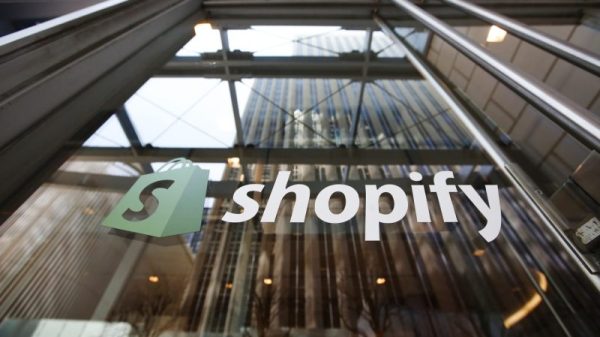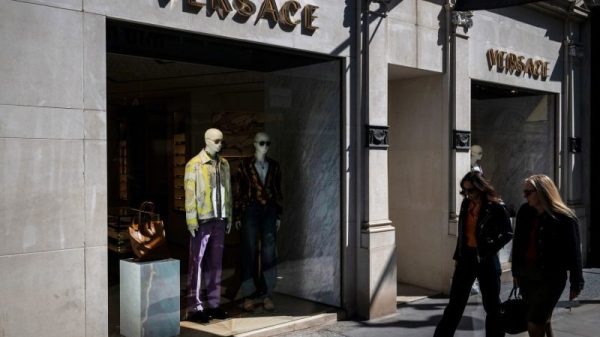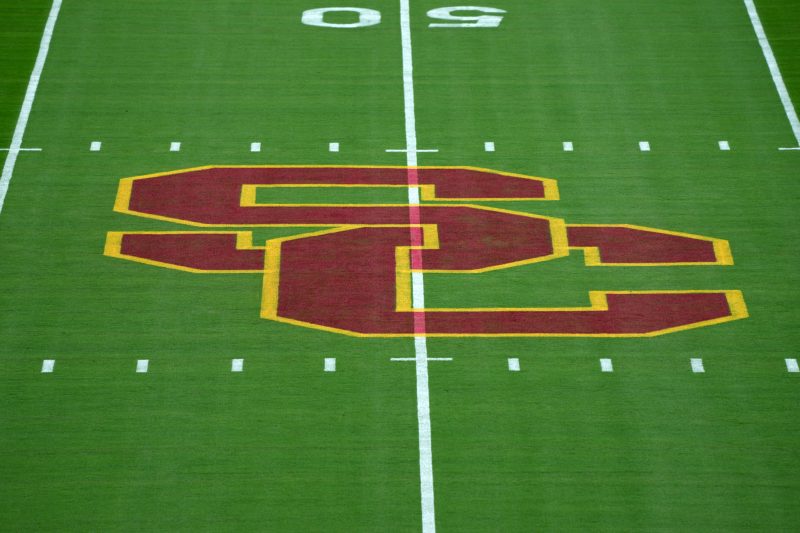An administrative law judge will begin proceedings Tuesday in a National Labor Relations Board (NLRB) complaint against the NCAA, the Pac-12 Conference and the University of Southern California that alleges they have unlawfully misclassified college athletes as ‘student-athletes’ rather than employees.
The case specifically revolves around athletes in football, men’s basketball and women’s basketball at USC. However, it carries the potential for much broader implications across college sports. And it is among the reasons that the NCAA and its member schools and conferences have been vigorously lobbying Congress for legislation that would include a provision preventing athletes from becoming school employees.
Here’s a look at where this came from and where it may go.
What are the origins of the case?
In September 2021, the Biden Administration’s appointee as NLRB general counsel, Jennifer Abruzzo, issued a memorandum saying that she views college athletes as employees of their schools under the National Labor Relations Act (NLRA).
At the time, University of Illinois labor law professor Michael LeRoy told USA TODAY Sports that Abruzzo’s memo amounted to her ‘inviting a petition from players to form a union at a private institution. She’s put it out there. She’s saying, ‘Bring it.”
In February 2022, the National College Players Association, a group that advocates on behalf of college athletes, did just that. But there ended up being more.
The joint-employer theory and why it matters
When the NLRB’s Los Angeles office issued its complaint in May 2023, as well as when it amended that complaint in September, it alleged that the NCAA, Pac-12 and USC have been joint employers of the athletes because the NCAA and Pac-12 had control over the athletes’ working conditions and ‘administered a common labor policy’ with USC regarding those conditions.
If this theory of the case prevails, it could have implications for all of college athletics. The NLRA applies to private employers. State laws govern public employees, and many states have laws that do not allow public employees to unionize.
USC is a private school. The NCAA and the Pac-12 are private, non-profit organizations. If the NCAA and a major college-sports conference are found to be employers of athletes, then ‘every college athlete has a private employer,’ Gabe Feldman, director of the Tulane Sports Law Program and Tulane University’s associate provost for NCAA compliance, said Monday.
As such, it would open the door to the possibility of unionization and collective bargaining for athletes at public schools, Feldman said.
An effort to unionize football players at Northwestern University ended in August 2015, when the full NLRB said that because the board has no jurisdiction over public schools, addressing the Northwestern effort would run counter to the NLRA’s charge that the board create stable and predictable labor environments in various industries. Under a joint-employer theory, that issue could go away.
The NLRB L.A. office’s side
The complaint cited excerpts from the USC athletics department’s Student-Athlete Handbook and its Social Media Policy & Guidelines for Student Athletes, which set a variety of regulations that athletes must follow.
It also alleged that USC, the Pac-12 and the NCAA ‘have intentionally misclassified the [p]layers as non-employee student athletes in order to deprive’ them of their right under the NLRA to organize or bargain collectively and to ‘discourage (them) from engaging in protected concerted activities’.
The USC, Pac-12 and NCAA’s side
Each of the three entities has filed a argument for dismissal, offering separately or collectively a set of arguments including:
The contents of USC’s handbook do not constitute a set of ‘rules’ that violate the NLRA. They are ‘merely recommendations, or general admonitions’ and ‘do not rise to the level of work rules and their maintenance does not constitute an unfair labor practice.’
Under the First Amendment, they cannot be compelled to use a phrase other than ‘student-athletes’ to describe students who play for the teams in question.
The Pac-12 is not subject to the NLRA because 10 of its 12 members are public schools. That makes the conference a ‘political subdivision,’ in the context of the NLRA, because the conference’s governing board comprises school presidents and chancellors who answer to public officials in their states.
What happens now
What originally had been set to be one several-week trial had to be re-arranged because of a conflict in the judge’s schedule. Instead, there will up to three days of pre-trial matters this week, then testimony Dec. 18-20, Jan. 22-Feb 2, and, if needed, Feb. 26-29.
The ruling of an administrative law judge can be appealed to the full National Labor Relations Board, and a board decision can be appealed in federal court.






